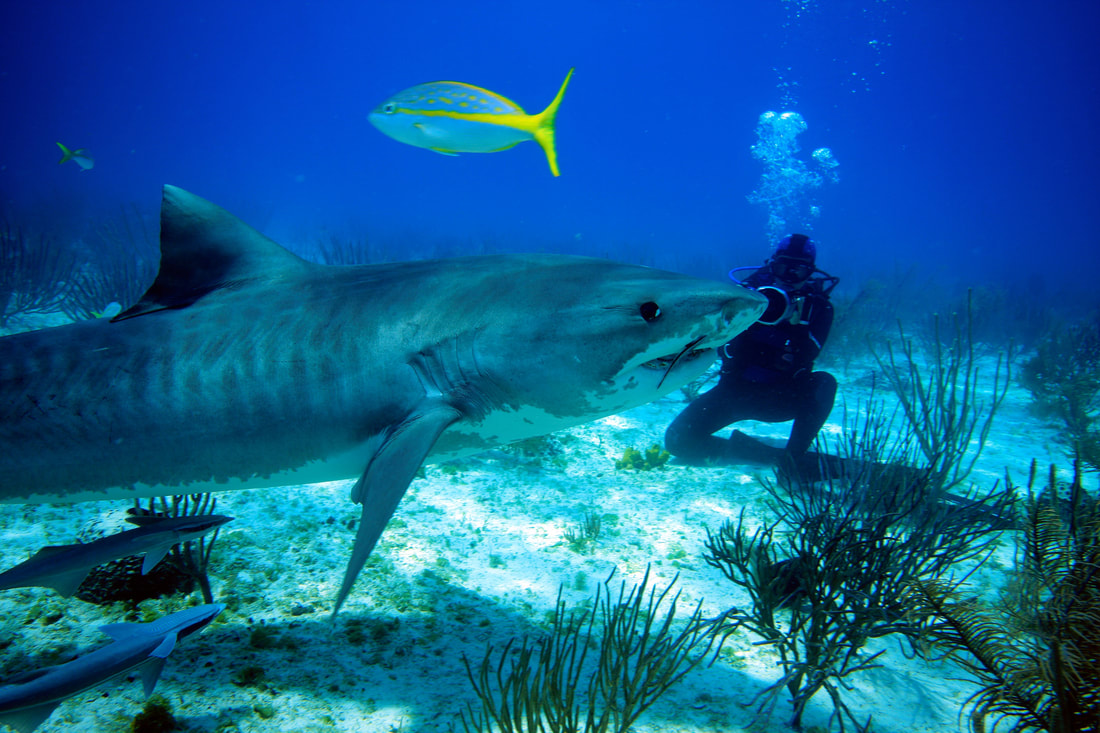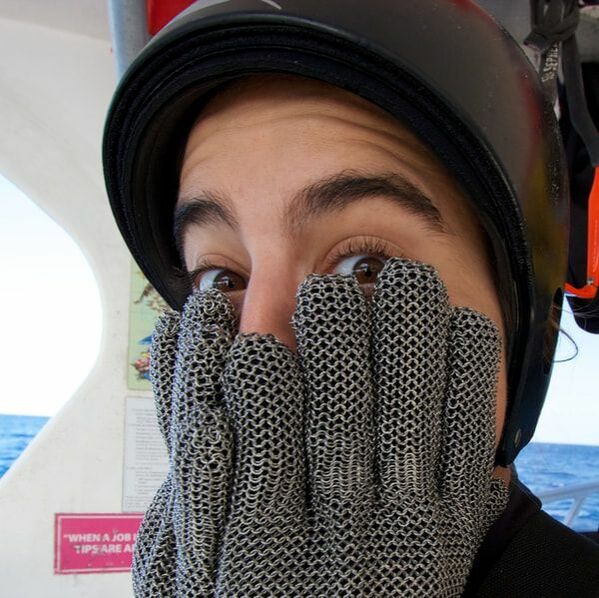|
We reached out to our festival filmmakers to ask them five questions about the experience of making their films.
SHARK GIRL Trailer from Jackson Wild on Vimeo. What inspired this story? Producer, Director and Writer Gisela Kaufmann: We’ve been producing underwater documentaries for over 15 years and had just completed a one-hour special on manta rays, when we saw a passionate Facebook post from a young Australian shark campaigner, Madison Stewart, who was pleading to save sharks in the Great Barrier Reef (GBR). We were surprised to learn about the legal shark fisheries in the GBR and after meeting Madison in person, we were very impressed by her passion, knowledge and foresight. There are so many, often sensationalized shark films out there, we never thought we would enter these murky waters. Yet meeting Madison changed all this. Here was a remarkable young person: instantly engaging, free-spirited yet fully focused, and deadly serious about her life’s mission to save her ‘family’, as she calls sharks. With Madison we could tell an entirely different story, a very personal one that would be thought provoking and have an impact on people who might not care about these animals and their cruel fate. What impact do you hope this film will have? GK: After the release of the film Australia’s biggest seller of fresh shark meat, Woolworths, was inundated with emails and Facebook messages and has since stopped its sale. However the company has not (yet) released an official statement confirming they will stop selling fresh shark meat for good. Through continued campaigning Madison has managed to have at least two smaller Australian supermarket chains withdraw shark meat from sale and confirm they will not bring it back. For the first time, Australian health authorities have agreed to meet with Madison to discuss the potential danger of shark meat for human consumption. We hope that our film will continue to help change awareness for the plight of our oceans and the protection we need to grant its apex predators, sharks, which are so tremendously misunderstood and misrepresented. Describe some of the challenges faced while making this film. GK: Environmental films often touch on political issues and with that a whole range of challenges arises. Our key challenge throughout the film was getting people to participate who are part of the legal shark trade in Australia - fishermen, middlemen, wholesalers, fish traders/shops, fishery departments, even health departments - all of them declined or ignored our invitation to participate, repeatedly, even though this program was for Australia's public broadcaster. We often had to resort to 'undercover' filming e.g. in fish shops and markets, and in the end were lucky to find one shark fishermen willing talk to us, but only because we tracked him down on location and the personal contact made it possible. Surprisingly, the majority of scientists who work on shark populations in the GBR also declined our invitation to participate, even though we do have a long-standing and very positive track record with the science community (e.g. previous film PROJECT MANTA received Australia's annual award for Best Science Journalism). Anything 'shark' is a hot topic in Australia, most of the research is funded by the Government (with dwindling funds and lots of job cuts) and it seemed no one wanted to be involved in a film that is in a way against current Government politics (which is pro shark fishing & culling). With a huge amount of effort we managed to get the experts involved, but often they gave us 'political statements' rather than factual ones. Dealing with a political 'hot topic', and a global supermarket chain for that matter, also meant we had to be super diligent with our fact-checks and stay even more on the conservative side than usual. In fact 2 months after delivery of the program, we had to recall it because one broadcaster felt, due to a new development we needed to change one script line; according to our lawyers the line was still fine but probably not as water-tight as initially, yet it was feared that the involved concern could put an injunction on the film. It's the first time in 25 years that we ever had to recall a delivered film, from 3 continents, but there was no choice. Thankfully everything was revised within a few weeks. It was a strong reminder that one needs to have a very healthy legal budget when venturing out into environmental or conservation films. All up it's the most we've ever spent on legal fees. What drove you as a filmmaker to focus on our oceans and marine life? GK: Our oceans are the bases for all live on earth and we’ve always been passionate about this wondrous, fascinating and still little explored yet threatened blue world. We’re very committed to tell our oceans’ stories and plight, hoping to make at least a small difference for their future and protection.
0 Comments
Leave a Reply. |
Archives
March 2024
Categories
All
|
Contact UsJackson Wild
240 S. Glenwood, Suite 102 PO Box 3940 Jackson, WY 83001 307-200-3286 info@jacksonwild.org |




 RSS Feed
RSS Feed